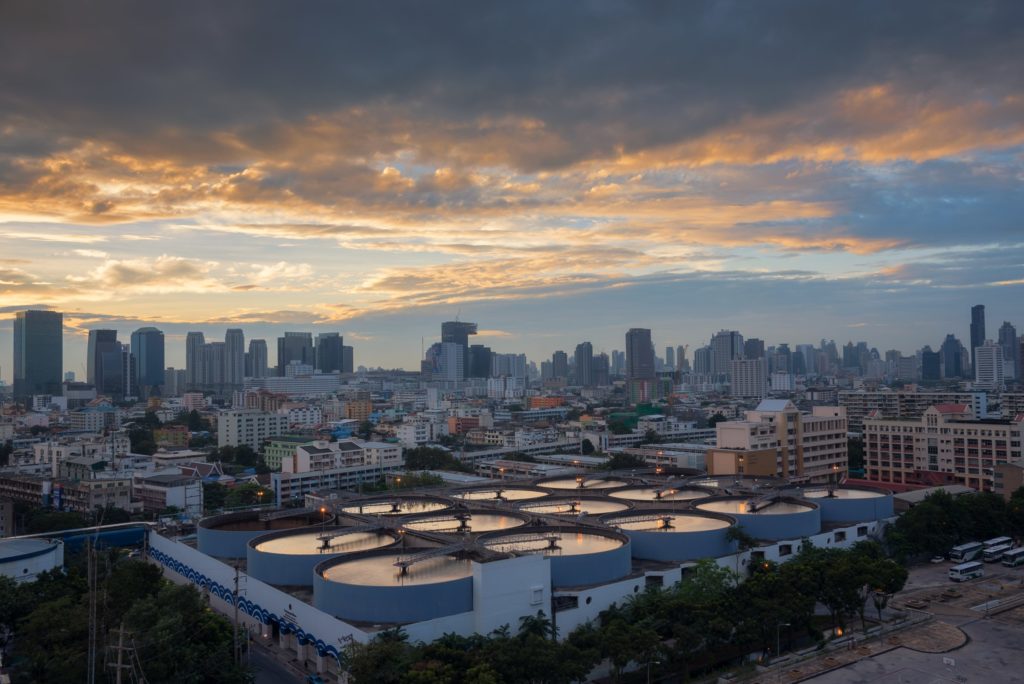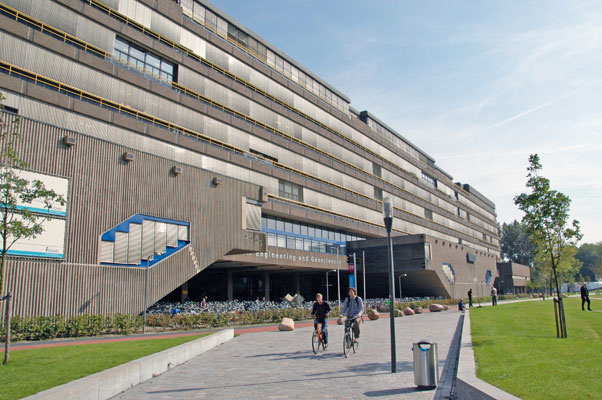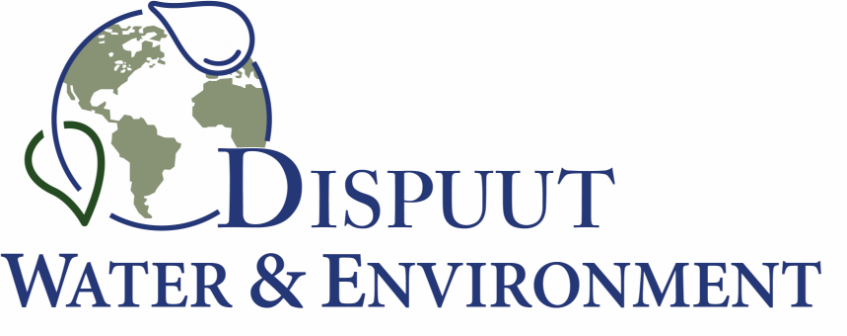Home » Environmental Engineering
Track: Environmental Engineering
From 2022: MSc Environmental Engineering substitutes the tracks Water Management and Environmental Engineering.
The TU Delft is planning to start this new, comprehensive master programme Environmental Engineering in September 2022. This will substitute the MSc tracks Water Management and Environmental Engineering from September 2022.
Information on the new master can be found on the MSc Environmental Engineering website. Here an elaboration can be found on the following topics:
- Programme,
- Research,
- Career prospects,
- Admission, Application & Finance,
- Related programmes,
- Study choise & events,
- Student Associations,
- Contact, Online courses (MOOC).
Please bear in mind that this Master Programme is subject to accreditation.


The Master Program is changing, how will that affect me? (For students who started before September 2022)
Click this link to see the courses discontinued in ’22-’23 due to master change (the last time a course is offered is shown in blue)
Goal of education part
The ‘Dispuut Water & Environment’ attaches large value to education. Therefore, our main goal is to keep and enforce the link between students and the department. We act as a representative of the students in decisions regarding organisation and education of the two masters: Water Management (WM) and Environmental Engineering (EE).
Both of our masters have their own commissioner of education. They are the first contact person of students and teachers in case of educational related comments and questions. Additionally they are responsible for the evaluation of courses and communication of the results with lecturers and the Department.
One of the commissioners also represents the Dispuut in the Board of Studies (BoS), an university organ which safeguards the quality of the programmes and is the sounding board for the study programmes at the faculty. It has the right of approval on parts of the programmes and is therefore important for (major) changes in the master programs.
The Environmental Engineering MSc-track offers the following 2 specialisations:
Environmental Technology
Environmental Science
In this specialisation you learn about the fundamental physical, chemical and (micro)-biological processes and how these can be engineered for soil remediation, water and wastewater treatment, solid waste treatment and resources recovery. You are taught the theoretical backgrounds, conduct experiments and learn to design systems and conduct research into innovative solutions yourself. Further subjects include environmental health, final thesis work and related elective courses.
Courses which will be part of this specialisation:
- Chemical Conversions
- Water Treatment
- Environmental microbiology & Biotechnology
- Solid Waste Management
- Conceptual process design
In this specialisation, you learn about the main components of the Earth’s physical system, with a strong emphasis on climate and the hydrological cycle. You will build skills in mathematical modelling and advanced measurement techniques that will enable you to make predictions over short and long time horizons. Remote sensing will be an important tool to observe large scale phenomena in the atmosphere, on land, and in water bodies. The clever combination of models and measurements make this specialization special.
Courses which will be part of this specialisation:
- Introduction to meteorology
- Hydrological Modelling
- Remote sensing and Data assimilation
- Environmental Monitoring & Remote Sensing
- Atmospheric Water Cycle
Response group
The Dispuut is convinced that feedback is indispensable to keep and increase the quality of education. Since the TU Delft evaluate courses only once every five years, the response groups are initiated to provide annual feedback to course coordinators. In this way course can be improved during the period itself or for the upcoming education year. Especially in the fast changing fields of Water Management and Environmental Engineering this has proven to be valuable.
Each year, a new response group is created with supervision of the commissioner of education for the specific master. Both the WM and the EE response groups meet up two times each quarter. Feedback is collected on feedback forms and discussed with lectures to see in which way feedback can be incorporated in the course.
If you have any feedback, comments or would like to participate in one of the response groups. Please do not hesitate to contact us.
MSc. Graduation
Your master study will conclude with your graduation, taking place when the diploma is handed to you by your assessment committee after a successful thesis defence. A defence can only take place if you have fulfilled all other requirements, most important successfully completed a study programme according to the regulations.
Therefore Student affairs (SPA) and your Master Coordinator of your track need to be informed of your intention to graduate. The procedure for that, through a number of forms, is described in a checklist for graduation.
The checklists you can find on the Water Management website https://www.tudelft.nl/en/ceg/about-faculty/departments/watermanagement/education/master/msc-thesis-water-management/
Which checklist to use depends on the track or section you belong to. For the tracks we distinguish between Water Management and Environmental Engineering. Then there is a separate checklist for students that fall under the section Sanitary Engineering or the section Water Resources. Under which section you fall depends on the chairperson of your assessment committee. The chairperson of your committee or the master coordinator can inform you when in doubt.
The same website also gives:
1) A guide on how to do the graduation work at the department (Guide for graduation work at Water Management)
2) An application form for the master defence (Application form master defence)
For more information have a look at the presentation about starting/doing a Msc Thesis & the general procedures within EE.
If you need more help you can contact the following thesis coordinator:
Boris van Breukelen (Environmental Engineering)
Room: CiTG 4.49
E-mail: B.M.vanBreukelen@tudelft.nl
Hon-Chuck - Environmental Technology
I’m Hon-Chuk from Hong Kong and now a Year 2 master student on Environmental Engineering, specialising in Environmental Technology in TU Delft. I studied Environment and Sustainable Development in my bachelor and would like to go further on technologies and treatments on water. Therefore, I came here which is well-known on handling water right after my graduation and it seemed to me now this is a right decision. The master programme helps me to build a strong knowledge foundation especially in water treatments which equips me well for my future career and feeds my curiosity.
Currently, I am doing an internship on eutectic freeze crystallization related to zero brine project. EFC is also a good reason why I should study here as I have never heard of it before; the technology which is able to produce pure ice (water) and salts from wastewater sounds promising and fascinating. A new perspective and opportunities are opened.
It is not just shoe-shining but I truly think the Environmental Technology track is a good choice for who is looking for learning (new) technologies to save the environment. In companion with my friendly classmates and nice professors, I enjoy my time in TU Delft and am looking forward to the coming year and hopefully a good career onward.

Rosa - Environmental Science
A study about the changing environment and the impact of this on global circulation, sounded like the right study for me. My name is Rosa and one year ago I decided to start with the Environmental Science track after finishing my bachelor Molecular Science and Technology (Chemistry/Chemical Engineering) at the TU Delft. The track offers me a broad overview of all the natural phenomena, which take place all around us every day. From extreme precipitation and how to model this, to the use of satellite data to map land use change.
After following the interesting courses of the first year, I am now starting my internship at KNMI (the Dutch Meteorology Institute). The main focus of this internship will be on the air quality in Rotterdam and tracking the pollution streams. After my internship, the possibilities are still open for my master thesis. Will I go for research at one of the groups of the TU Delft, go to a company or maybe stick with my research at the KNMI? As there are so many options, this will not only be a question for my thesis. Also, after graduation there will be many job opportunities all over the globe.

